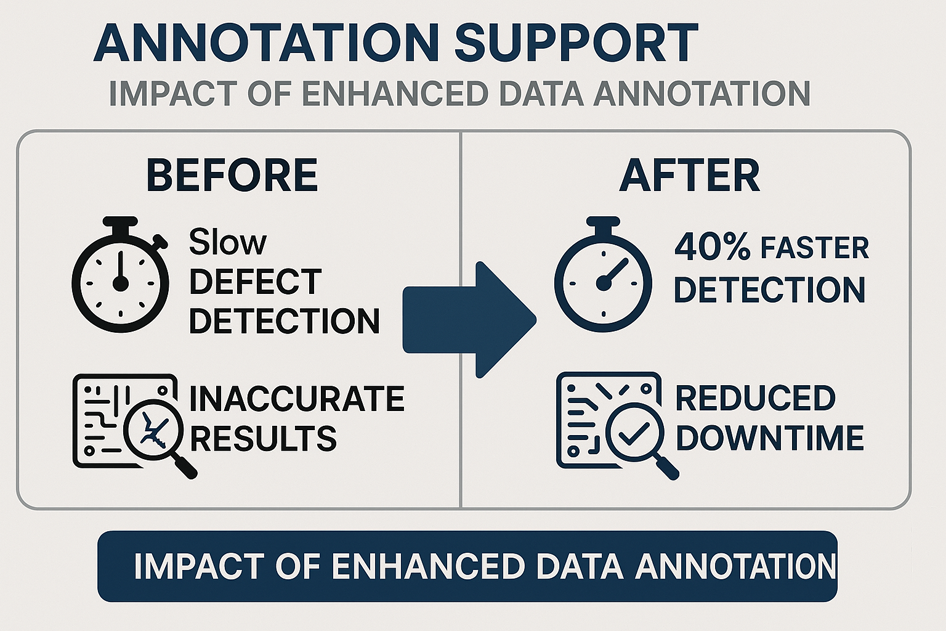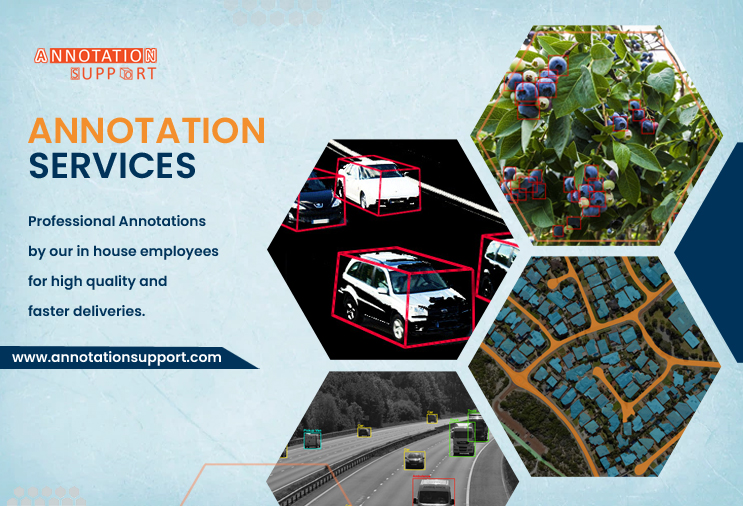The Secret Revealed: Quality Control Techniques Used by Annotation Support in Data Annotation Projects
Ensuring high-quality annotated data is the backbone of any successful AI or machine learning system. But maintaining accuracy at scale is not easy—especially when projects involve thousands (or millions) of data points. This is where Annotation Support, a trusted data annotation partner, stands apart. This article unveils quality control (QC) methods that Annotation Support applies to provide stable, dependable, or production-quality datasets. Why Quality Control is Important in Data Annotation? The quality of the data used to train AI models is very important. The incorrectly annotated data sets result in: The Annotation Support makes sure none of these problems happen because it is a multi-layered QC approach which makes sure that every step is precise. 1. Multi-Level Review System (3-Tier QC Process) Annotation Support follows a three-tier quality check in order to eradicate errors: Level 1: Annotator Self-Check Cross-validation Annotators use checklists and platform validation to check the annotations made by them. Level 2: Peer Review The second trained annotator checks the batch that was completed against consistency, edge cases and guidelines. Level 3: Expert Quality Assurance. Final audit by senior QA specialists is done to establish the accuracy of the dataset within the benchmarks required by the clients (which is often 95-99%). This multi-layered system will reduce the number of human errors and only quality data will proceed. 2. Standardized Annotation Guidelines Annotation Support develops before an initiative is initiated: Standardization makes the interpretation of the annotation clear and all annotators understand the work with an identical interpretation and this helps to increase accuracy and consistency. 3. Automated Error Detection Tools Annotation Support will use automation tools to accelerate the QC and minimize human errors: These aid in identifying mistakes at an early stage and improve the review process 4. Gold Standard Data Benchmarking Annotation Support has so-called golden datasets which are expert-labeled samples that serve as a point of reference. The annotators will be required to compare their results with these gold standards. Any significant shift in the deviation reveals the incompleteness of the knowledge and leads to further training. 5. Training & Skill Development Programs Annotation Support spends heavily on the development of the skill of the annotator: This constant improvement keeps the annotators abreast with the developments and gives them perfect results. 6. Continuous Feedback Loops QA teams have a feedback connection with annotators: This instills a learning and innovation culture. 7. Collaboration with clients and Refinement Annotation Support collaborates with the clients to perfect: This makes the dataset adapt to the changes in the project requirements. Why Companies Trust Annotation Support? Annotation Support has credited its reputation on: Based on these processes, Annotation Support becomes a desirable collaborator of any AI-driven organization in any industry. Final Thoughts It is not much of a secret that high-quality annotation is achievable – but keeping it at a high level when dealing with large volumes of data is. Annotation Support attains this by an advanced combination of: Through these methods, Annotation Support makes all datasets correct, consistent, and prepared to make the world-class AI and ML work.



